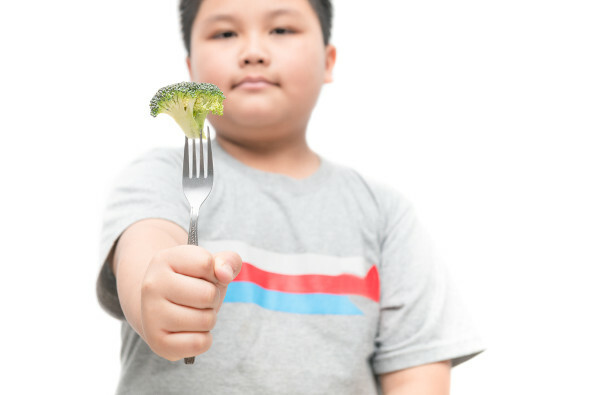O overweight can be defined as a weight above the desirable for a person with a certain height and can be caused by factors such as inadequate nutrition and lack of physical activities. This is a serious problem, as it can trigger various damages to the individual's health, especially in the childhood.
Difference between childhood overweight and obesity
When we talk about obesity and overweight, we have to keep in mind that we are talking about different but connected occurrences. We say that a person has overweight when she weighs more than is desirable for her height. Obesity, on the other hand, refers to an excess of body fat in relation to lean mass.
If a person's weight gain occurs excessively, the obesity, which is a chronic disease. According to the Brazilian Association for the Study of Obesity and Metabolic Syndrome, in the overweight phase, which is the earliest phase of overweight, it is easier to return to normal weight.

The World Health Organization recommends the adoption of the Body Mass Index (BMI) to assess the nutritional status of children and adolescents. For this group, BMI takes into account several factors, being a complex calculation.
Be sure to read:Limitations of BMI
Causes of childhood overweight
Weight gain is directly related to genetic and environmental factors. Genetic factors create a kind of suitable environment for environmental factors to act. Environmental factors are related, for example, to the eating habits and also with the practice of physical activities, besides, of course, psychosocial aspects.

In childhood, food and physical activity are very influenced by the actions of adults. This means that if the family consumes foods rich in sugars and fats, it is very likely that the children will also eat this way, which can contribute to weight gain.
The same goes for the practice of physical activities. When they are little stimulated by the family, the individual can become sedentary. Sitting for a long time watching television, playing video games or using a computer is a very habit observed in children and which can contribute to overweight due to their lack of caloric expenditure. activities.
Also, according to World Health Organization, one of the factors identified as important for the increase in overweight and obese children is the sale of unhealthy foods and non-alcoholic beverages.
Read too: Creative and healthy snacking tips for kids at school
Consequences of overweight in childhood
Child overweight is a risk factor for the development of several health problems. It is believed that about 70% of overweight adolescents can become overweight or obese adults, conditions that can cause heart problems, hypercholesterolemia (high blood cholesterol levels), high pressure, diabetes type 2, some types of cancer, breathing difficulties and orthopedic problems.
We must not forget that overweight negatively affects the children's self-esteem and the report of bullying against people who are overweight for their height. It is important to say that bullying has a direct relationship, for example, with the increase in suicide numbers. It is estimated that problems such asanxiety and depressionare three to four times more frequent in obese people.
Read too:What risks can anxiety bring to the student?
Treatment of childhood overweight

Overweight is a serious matter that deserves attention, as it can trigger a series of problems in childhood and also in adulthood. To treat childhood overweight, it is important that the child change your lifestyle habits. This means that the child must have a healthier eating, with a reduction in foods rich in fat and sugars, for example, and must practice physical activities.
It is important to highlight that the child should not be on restrictive diets to lose weight. It is necessary that it be guided by a nutritionist and that a food re-education work be done. With regard to physical activity, it is also important that the physician advises on the best activity to be performed. Physical activity can be inserted in a child's life, for example, by encouraging them to practice a sport.
Another point that deserves attention when it comes to reducing the weight of children is the importance of family in this process. It is not enough to tell the child that they should have better nutrition and not show this example at home. The entire family must strive to have a healthier life, and this is an attitude in which everyone wins.
Also be sure to read:infant feeding
By Ma. Vanessa Sardinha dos Santos
Source: Brazil School - https://brasilescola.uol.com.br/saude-na-escola/perigos-sobrepeso-na-infancia.htm
